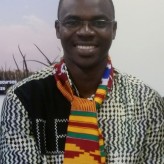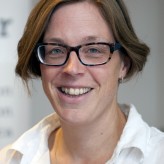
Photostory
As I approach the end of the first phase of my VIAWater project on closing the water loop for car wash stations in Ghana, I deem it useful to share my experiences and lessons with the community. Perhaps, this will serve as a source of inspiration to those who are brimming with brilliant innovative ideas but are hesitant to put in a teaser or waiting for a feedback from VIAWater on their proposal or those still implementing their projects with so many setbacks that they feel like almost throwing in the towel. Having personally gone through all these stages, I believe my experiences would whip up people’s passion to see their idea become a reality.
I got to know of VIAWater through an email sent to me by a colleague at Kwame Nkrumah University of Science and Technology (KNUST) inviting me for a presentation by the VIAWater team in Kumasi. I had keen interest in the theme and therefore wanted to know more about it. Thus, I attended with high expectations and was really impressed by the idea to support water innovation in African cities. I had an innovative idea which I was convinced could be successful but the feedback from people I interacted with initially was not very encouraging. In spite of this, I handed in my teaser in August, 2015 and after going through several months of feedbacks and online training sessions, I was given the green light in April, 2016. Yes, it took me 8 months of perseverance to get my project idea approved and during this period the temptation to give up was very strong. But all that while, I was spurred on by the desire to accomplish something that people thought impossible and inspire other budding entrepreneurs based on my experiences.
I kicked start my project with a visit to Gold Fields Ghana Limited, Tarkwa, where I had the opportunity to see a simple treatment system for wastewater from their car wash stations. This was made possible by an employee of the company who happened to be at my maiden presentation on the project in Kumasi. He offered to assist me get the green light to visit the company to observe the system so it can give me ideas on my system design. The journey to Tarkwa was my first time ever and had to endure a long dusty road at some point. However, eventually, the trip to the site gave me a good insight about the treatment system design, particularly oil separation.
Upon returning to Kumasi, I started with spatial mapping and characterization of all car wash stations in the Kumasi Metropolis. This would have been easier if any regulatory institution had such data but unfortunately none of them had this so I had to collect this information for the first time. After combing tirelessly through the Metropolis, I was able to produce a map showing the locations and other basic characteristics of the existing car wash stations for the first time ever. This activity gave me the opportunity to engage with owners of car wash stations to, among others, probe further into their willingness to adopt a wastewater recycling technology. I proceeded to select a number of car wash stations to assess their daily water use quantities based on the amount of water used to wash each car. Some owners of the stations however, did not consent to this due to diverse perceptions including the fear of tracking their profits to report to authorities for huge taxes to be levied on them.
After several attempts, eventually, owners of seven stations consented to this and therefore, a water quantity monitoring activity was carried out at these stations. This was done with the help of seven truly dedicated new graduates of KNUST who worked assiduously from 6am to 6pm each day for 6 days per week over an 8-week period. In fact, coordinating the data collection activity at seven car wash stations located several miles apart in the Kumasi Metropolis throughout this period, whether rain or shine was an uphill task and required strong determination both on my part and that of my field assistants. This was not without challenges but in the long run, we achieved our purpose and sealed it with a ‘touching’ group dinner where we shared our learnings and experiences. Following this, I analysed all the initial findings and designed posters to share with those who might be interested in knowing more about the project. I presented this at the Graduation Ceremony held at KNUST, the VIAWater Learning Tour in Accra, Ghana and VIAWater Sharing Skills Seminar, Machakos, Kenya and the 39th WEDC Conference in Kumasi. I have never been hesitant to share my project findings and due to this, I have had very useful inputs from people from diverse backgrounds.
Subsequently, I undertook a 1-month internship with the Environmental Protection Agency; the institution tasked with protecting Ghana’s environment from pollution. Since this institution was a key stakeholder in my project, this gave me the opportunity to get a good insight into their operations and share my findings with them. This was followed by the next step of the project which involved wastewater sampling and laboratory analysis. Indeed, I must confess that, this was the most grueling stage of the project. Identifying laboratories to analyse the wastewater was a big hurdle to cross and required mental fortitude to overcome it. Since this was pivotal to my project, being unable to surmount this would have had a serious toll on the entire project. However, after several weeks of searching, I got five laboratories located in three different cities; Accra, Kumasi and Obuasi where I could analyse all but one of my parameters. I picked wastewater samples from three car washing stations where I was given consent by the owners. During the sampling process, most people were very surprised to see wastewater from car washing stations being collected and I was therefore barraged with questions.
Having to transport the wastewater samples to these laboratories for analysis was very challenging since they were located far apart and on one occasion had my car slammed at the side by a truck which had failed its braking system. I escaped unhurt but had to spend a few days at the workshop repairing it. Leaving my family early morning only to return late at night during the sampling period was a tough time. Meanwhile, there was one crucial parameter that none of these laboratories had the test kit to analyse and as a result had to import the test kit. This also constituted another seemingly insurmountable hurdle because the kit needed to be shipped from the US which could take several months. Therefore, I analysed all the parameters without this and proceeded to share my findings with relevant sector stakeholders in Kumasi and Accra to get further inputs.
Fortunately, after months of waiting, I received the test kit imported from the US and currently using it to test the quality of wastewater for detergents prior to and after treatment. Presently, I have designed one of two treatment options which I intend to scale up eventually and testing its treatment efficiency at the laboratory. I must say that throughout the project, I have been supported by three VERY dedicated experts in the Netherlands, Brazil and Ghana on whom I have relied for technical support. Although this has not been always easy agreeing to varying ideas from the three different sides, it has helped me to read extensively, get personal insight to determine what will be applicable to my system.
Considering all that I have been through to get to this stage of my project, I have come to realize that, the VIAWater project is not only for those who can only put together brilliant ideas, but also those who have the earnest desire and resolve to succeed no matter the circumstances. Because starting and sustaining a business in Africa is a tough challenge. Although, I have not yet come to the end of the project, the experiences I have had have really toughened me to put in my best to see my idea through to the end. I am very optimistic that the persistence, sacrifice, hard work and dedication would eventually pay off.
A little more persistence, a little more effort, and what seemed hopeless failure may turn to glorious success. ~Elbert Hubbard.


Dear Isaac,
Thank you very much for sharing this project diary. It provides a great insight also for other projects. Thank you for sharing the quote of Hubbard!